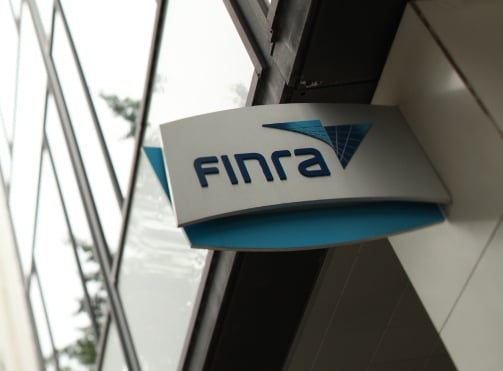Finra has proposed rules restricting some political contributions by brokers to prevent any potential conflicts of interest. And it could play into brokers' activity in the coming election year.
The so-called “pay-to-play” rules “would regulate the activities of member firms that engage in distribution or solicitation activities for compensation with government entities on behalf of investment advisers,” according to
the proposal. The
comment period for the rule extends for 21 days from publication in the Federal Register.
Investment advisers already are subject to similar pay-to-play restrictions under
rules adopted by the Securities and Exchange Commission in 2010.
Language in the SEC rule said the Financial Industry Regulatory Authority Inc. had to follow up with pay-to-play rules for its member firms, according to Amy Lynch, president and founder of FrontLine Compliance.
“The broker hired to solicit the government entity must follow these new pay-to-play restrictions under this new rule, which is basically identical to the ones the SEC wrote for advisers,” Ms. Lynch said. “There's really no difference.”
The rule would put in place contribution caps of $350 in an election year and $150 in a non-election year for brokers. In the event a broker accidentally exceeds the caps, there is no penalty as long as a refund is received within a four-month period of receipt of the donation. Brokers who don't meet these exemptions are unable to solicit a government official or entity for business within a two-year period of the donation.
Depending on when the rule is finalized, the regulation could affect brokers' political contributions in the 2016 election cycle.
The SEC rule changed how adviser advocacy organizations raised and donated money
in the 2012 election year.
“I think it's not a coincidence [Finra] finally got the rule out and next year is an election year,” Ms. Lynch said.
Brokerages will need to ensure they have adequate record-keeping systems in place to address the rules, according to Susan Grafton, partner at Dechert.
“Brokers will need procedures for tracking their associated persons' contributions. The rule imposes additional record-keeping requirements and there will be a need for additional training of personnel, because a lot of pay-to-play violations happen inadvertently,” Ms. Grafton said.
Because Finra's pay-to-play proposal is stipulated by the SEC's rule-making endeavor, many brokerage firms are likely already in compliance with the proposed regulation, according to Ms. Lynch.
“Many firms have already gone ahead and adopted their own guidelines that already meet their requirement because they knew this was coming,” Ms. Lynch said.
Where firms could fall short is the maintenance of a prospect list identifying parties being solicited in order to flag when solicitation of a government entity is taking place, Ms. Lynch said.







